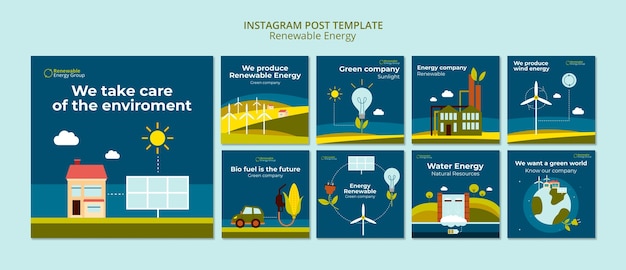Solar Energy Fun Facts

Solar energy is the ultimate renewable energy source, harnessing the power of the sun.
Did you know that solar energy is the most abundant energy source on Earth?
Solar panels are made up of photovoltaic cells that convert sunlight into electricity.
Solar power is a clean and pollution-free energy source, reducing our carbon footprint.
Solar energy is not just for sunny areas; it can be harnessed even on cloudy days.
The largest solar power plant in the world covers an area of more than 14,000 acres.
Solar energy is becoming increasingly affordable, making it accessible to more people.
The first solar-powered car was invented in 1955, showing the potential of solar energy.
Solar panels can last for decades, providing a long-term source of clean energy.
Solar energy is a renewable source that will never run out as long as the sun is shining.
The amount of solar energy that reaches the Earth’s surface in an hour is enough to power the world for a year.
Solar energy can be used to heat water, reducing reliance on fossil fuels.
Solar energy can be used to power everything from homes and businesses to cars and boats.
Solar energy installations create jobs and boost local economies.
Solar power is a silent energy source, with no noise pollution.
Solar energy can be used in remote locations where grid electricity is not available.
Solar energy can be stored in batteries for use during the night or on cloudy days.
Solar Energy Fun Facts part 2
Solar energy systems can be easily installed and expanded as needed.
Solar energy can help to reduce dependence on foreign oil and increase energy independence.
Solar power plants can be built in a short amount of time, providing a quick solution to energy needs.
The use of solar energy can lead to lower electricity bills for households and businesses.
Solar panels require minimal maintenance, making them a hassle-free energy source.
Solar energy is a reliable source of power that can be counted on day after day.
Solar energy reduces the need for traditional power plants, which can be expensive and polluting.
Solar power is not affected by rising fuel prices, providing stability in energy costs.
The installation of solar panels on rooftops can increase the value of a home or building.
Solar energy can be used to power outdoor lights, reducing reliance on grid electricity.
Solar energy can be used to heat swimming pools, extending the swimming season.
Solar energy can be used to power agricultural operations, reducing farming costs.
Solar power can be used in disaster situations to provide emergency electricity.
Solar energy is a decentralized energy source, allowing for greater energy security.
Solar energy is a low-maintenance solution for powering remote weather stations and monitoring equipment.
Solar energy is a scalable solution that can be customized to meet the needs of any project or application.
Solar panels can be integrated into building materials, creating aesthetically pleasing designs.
Solar energy can be used to power water purification systems, providing clean drinking water in remote areas.
Solar power can reduce the strain on the electrical grid during peak usage times.
Solar energy can be used to power electric vehicles, reducing greenhouse gas emissions.
Solar energy can be used to power streetlights, increasing safety and reducing energy costs.
Solar-powered mobile phone chargers are a convenient and eco-friendly way to stay connected.
Solar energy can be used to power recreational vehicles, allowing for off-grid adventures.
Solar panels can be installed on floating platforms, utilizing unused space on bodies of water.
Solar energy can be used to power desalination plants, turning seawater into fresh water.
Solar energy can be used to power remote medical clinics, providing essential healthcare services.
Solar-powered backpacks are a portable and sustainable way to charge devices on the go.
Solar energy is a technology that continues to evolve and improve, paving the way for a brighter and cleaner future.